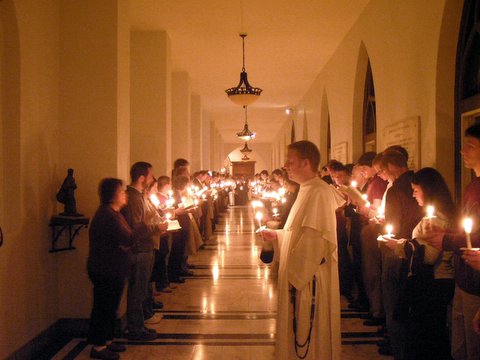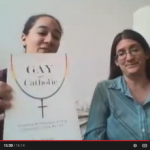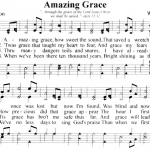Pascal-Emmanuel Gobry has posted a question on his blog for people who like “the Benedict Option” and I’d like to take a crack at answering it. PEG asks:
You have two extremes on the spectrum. On the one side, you have what you might call (humorously! don’t freak out!) the “David Koresh Option”: complete sectarian withdrawal, the Barbarians are flooding the Empire, and all we can do is huddle in the ark (mixing up my metaphors over here) and wait for the flood to end. And I think everyone involved in this discussion would agree that this extreme is wrong and that nobody is talking about that.
And then on the other end of the spectrum, you have: people basically living the same lives, but with more piety, and a greater emphasis of community ties between Christians, and a stronger sense of being “in the world but not of it.” And this is the language that Rod uses most often when talking about the Benedict Option.
But here’s the thing about that other end of the spectrum: if what the Benedict Option is is just Christians having more piety, and being more involved in their parish, and having a greater sense of their “dual citizenship” of Heaven and Earth–is there anybody who opposes that? Is there anyone saying Christians should be less pious, or less involved in their church, or less critical of, or complicit in the evil that surrounds them? It seems to me that if that’s what you’re talking about you’re not talking about “the Benedict Option”, you’re just talking about “Christianity.”
So I guess the question that I would like the “Benedicters” to answer is: sincerely granted that you’re not about the David Koresh Option, then what is it that you’re about that’s not just Christians being more pious, such that it makes sense to not just call for more piety, but for something more specific called “the Benedict Option”? What is on the spectrum between the David Koresh Option and what you might call the “Mere Christianity Option” that you find so interesting, and how do your interlocutors distinguish that from not just one of them, but both?
When Rod Dreher profiled model Benedict Optioners, he wasn’t focused on the monks in the monastery, but the people who had deliberately settled in the shadow of the monastery, so that they could lean on the brothers while engaging with the world. I find myself living in a similar situation as a Washington D.C. resident, living within the orbit of the Dominican House of Studies — only a short metro ride away from my home and my office.
My parish hosts two Dominican brothers, who assist at Mass and run an Adult Sunday School, where they give excellent weekly talks on matters of faith. They’re so integrated in to the parish that, when our RCIA director was choosing sponsors for my class of converts, she had a Dominican step in to be my godfather. Once a month, I go to the “Christopolis” lecture, where a Dominican father introduces a speaker (not infrequently a Dominican) to speak on the underpinnings of our religion and how to live them out. When I had a free afternoon, I stopped by the House of Studies to join the friars and their guests for Evening Prayer (and used to do it a lot more often, when I had a job with “summer hours”). A Dominican friar has stopped by the monthly debates I host, chatted with my friends, and helped us consider the question “R: Send Your Kids to Public School” (which touched on Benedict Option themes). And, just a couple months ago, I saw a lot of my friends when we all gathered at the priory for the Dominicans’ Vigil of All Saints.
Let’s pause for a moment for a video of them caroling at DC metro stations:
Living supported by the Dominicans does more for me than cultivating piety on my own or even being involved in my church. The brothers (and the sisters studying at their school) offer infusions both of knowledge and of joy for us. They open up the faith so we can study in in greater detail, not just in order to amass more knowledge, but so that we can delight in beauty. They also clear out space for us to experience this delight. And they serve as a Schelling Point where we can find people we can share philia bonds with (“You, too? I thought I was the only one!”). I even went so far as to recommend to one Catholic friend (currently in law school) that he might want to prioritize finding a summer job in DC, so he could have the experience of being in such a rich and lively Catholic community, so he could decide if he wanted to prioritize living here, or someplace like it, when he did longer-term career planning.
The Benedict Option I wanted my eventually-esquired friend to try out was the experience of having some places in his life where Catholicism was an assumption, a community where asking if people wanted to pray Night Office on the way back from a bar wasn’t an unusual request, and there were ready helpers to lead us “further up and further in!”
If I were giving a very short answer to PEG’s question, I would say the Benedict Option isn’t about just working on being more pious (whether alone or in community) but about rearranging your life and community so there are spaces where joyful piety happens to you more often; a few spaces where your Catholicism doesn’t feel like an act of resistance, any more than eating does.
The danger of being besieged by mainstream culture is as much the development of a siege mentality as the actual dangers of the assault. People trapped in a siege mentality let their opponents choose the field, conceding (implicitly) that the most important parts of their faith are the ones that attract the most political pushback — after all, if they weren’t we wouldn’t spend all our time talking about them, right? Feeling besieged encourages Christians (and anyone else) to develop fear, suspicion, and defensiveness. It gives faith a cramped feeling if you mostly experience in contexts of conflict and contrast.
I like to visit the Dominicans because it usually gives me something new to think about and share when I leave the House of Studies and the Catholic friends who gather there. I might enter a Christopolis with my last few conversations all having been about media coverage of the Synod and having spend a lot of time just untangling distorted descriptions of what happened and what will happen next. Then, the lecture I attend gives me something to consider that’s much closer to home — how to cultivate honest gratitude, to God and to others, and how to make it easier for others to develop this virtue, too. Now, the next time I wind up in a discussion whose topic was chosen by the zeitgeist, it’s easier for me to parry with joy, and to say, “Honestly, I don’t care very much about parsing the relatio the Synod released, but I did hear a lecture last week I’d love to talk to you about, especially if you have any advice about how I can be less prickly about accepting gifts from other people.”
Christians are called to be in this world, but not of the world, and, in our diaspora, it helps to have some moments and places where we get a sense of what it would be like to be at rest, to whet our longing, and to remember that struggle and resistance might be necessary now, but aren’t our ultimate end.
Final bonus Dominican singing:













